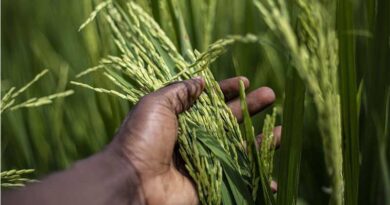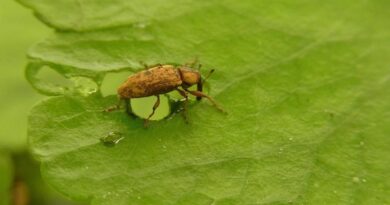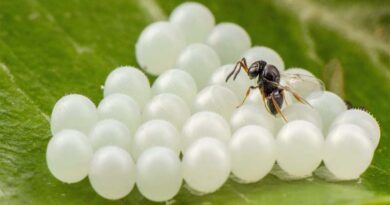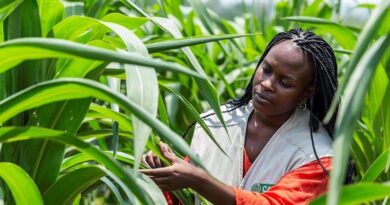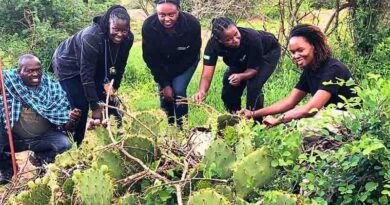CABI’s expertise in biological control resources highlighted in journal’s special issue
20 June 2023, US: CABI scientists have joined an international team of researchers from around the world who have shared their expertise in a special issue of BioControl that focuses on the importance of biological genetic resources.
The expertise particularly drew upon CABI’s strengths in advocating access and benefit sharing (ABS) policy and ABS best practices developed around the principles of the Nagoya Protocol (NP). The NP is the instrument for the implementation of ABS provisions of the Convention on Biological Diversity (CBD).
Dr David Smith, Dr Hariet Hinz, Dr Philip Weyl, Dr Ivan Rwomushana and Dr Joseph Mulema have all contributed to four papers within the special issue of BioControl which is the official journal of the International Organization for Biological Control of of invertebrate, vertebrate, and weed pests, and plant diseases.
The CABI scientists lead on a paper entitled ‘Building trust for sustainable access and benefit sharing of biological control genetic resources: a CABI case study.’ This looked at the biological control of the coffee berry borer (Hypothenemus hampei) to show the implementation of ABS best practices for the overlap between biological control and ABS.
In respect of Digital Sequence Information (DSI) associated with genetic resources, CABI also contributes to the ongoing global debate and evaluates how this may impact upon biocontrol research and delivery.
Meanwhile, Dr Hinz and Dr Weyl also contributed to papers entitled ‘Impact of access and benefit-sharing implementation on biological control genetic resources’ and ‘International agreement for the use and exchange of biological control genetic resources: a practical proposal.’
Dr Weyl and Dr Smith also shared their expertise in another paper: ‘Best practices in the use and exchange of microorganism biological control genetic resources.’
In the conclusion of the paper which used the coffee berry borer as an example, the CABI scientists stated that, “CABI implemented policy and best practice for compliance with the NP, all of which are publicly available to ensure transparency and accountability.
“The coffee berry borer case illustrates this where CABI – in collaboration with the United States Department of Agriculture (USDA), providers and users – is implementing its best practices and following country specific regulations of ABS to access genetic resources for classical biocontrol projects.
“CABI is committed to investing in negotiations for the access and use of genetic resources, especially those which result in a common good, such as classical biological control and our network of collaborators and centres around the world help facilitate compliant access.”
The scientists add that CABI’s approach involves putting information, skills and tools into people’s hands and in doing so shares the benefits of its work. They stress that with many countries still in the process of developing and publishing regulations with regards to the NP, more changes will be anticipated.
However, the researchers highlight that CABI is committed to keeping abreast of these changes and will adapt as needed.
They recommend that all users and providers of genetic resources contribute to the current CBD debate on DSI to ensure an appropriate regulatory framework is created that is both practical but does not impede innovation and delivery.
Following the tenth anniversary of the adoption of the Nagoya Protocol on Access and Benefit Sharing, CABI published a working paper which highlighted its benefit sharing activities in respect of its research involving genetic resources at its UK Centre in Egham and through activities of the CABI-IMI Culture Collection in Egham.
In 2018, CABI published its Nagoya Protocol Access and Benefit Sharing Policy online and decided to share its benefits whether the provider country is party to the Nagoya Protocol or not. This aligns with CABI’s mission to support its member countries in helping them improve crop production and enhance their livelihoods.
Also Read: Best Agrolife gets approval to manufacture Pyroxasulfone
(For Latest Agriculture News & Updates, follow Krishak Jagat on Google News)


